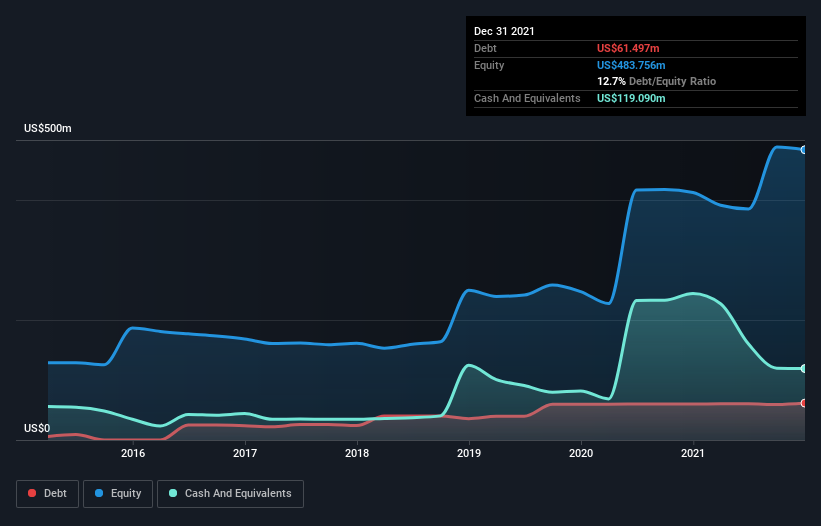Is AtriCure (NASDAQ:ATRC) Weighed On By Its Debt Load?
Legendary fund manager Li Lu (who Charlie Munger backed) once said, 'The biggest investment risk is not the volatility of prices, but whether you will suffer a permanent loss of capital.' When we think about how risky a company is, we always like to look at its use of debt, since debt overload can lead to ruin. As with many other companies AtriCure, Inc. (NASDAQ:ATRC) makes use of debt. But is this debt a concern to shareholders?
When Is Debt Dangerous?
Debt and other liabilities become risky for a business when it cannot easily fulfill those obligations, either with free cash flow or by raising capital at an attractive price. Ultimately, if the company can't fulfill its legal obligations to repay debt, shareholders could walk away with nothing. However, a more usual (but still expensive) situation is where a company must dilute shareholders at a cheap share price simply to get debt under control. By replacing dilution, though, debt can be an extremely good tool for businesses that need capital to invest in growth at high rates of return. When we think about a company's use of debt, we first look at cash and debt together.
Check out our latest analysis for AtriCure
What Is AtriCure's Net Debt?
The chart below, which you can click on for greater detail, shows that AtriCure had US$61.5m in debt in December 2021; about the same as the year before. However, it does have US$119.1m in cash offsetting this, leading to net cash of US$57.6m.
How Healthy Is AtriCure's Balance Sheet?
Zooming in on the latest balance sheet data, we can see that AtriCure had liabilities of US$56.4m due within 12 months and liabilities of US$75.1m due beyond that. Offsetting this, it had US$119.1m in cash and US$33.0m in receivables that were due within 12 months. So it actually has US$20.6m more liquid assets than total liabilities.
This state of affairs indicates that AtriCure's balance sheet looks quite solid, as its total liabilities are just about equal to its liquid assets. So it's very unlikely that the US$2.88b company is short on cash, but still worth keeping an eye on the balance sheet. Succinctly put, AtriCure boasts net cash, so it's fair to say it does not have a heavy debt load! When analysing debt levels, the balance sheet is the obvious place to start. But it is future earnings, more than anything, that will determine AtriCure's ability to maintain a healthy balance sheet going forward. So if you want to see what the professionals think, you might find this free report on analyst profit forecasts to be interesting.
In the last year AtriCure wasn't profitable at an EBIT level, but managed to grow its revenue by 33%, to US$274m. With any luck the company will be able to grow its way to profitability.
So How Risky Is AtriCure?
Although AtriCure had an earnings before interest and tax (EBIT) loss over the last twelve months, it made a statutory profit of US$50m. So taking that on face value, and considering the cash, we don't think its very risky in the near term. Keeping in mind its 33% revenue growth over the last year, we think there's a decent chance the company is on track. There's no doubt fast top line growth can cure all manner of ills, for a stock. There's no doubt that we learn most about debt from the balance sheet. However, not all investment risk resides within the balance sheet - far from it. Be aware that AtriCure is showing 3 warning signs in our investment analysis , and 1 of those is significant...
If you're interested in investing in businesses that can grow profits without the burden of debt, then check out this free list of growing businesses that have net cash on the balance sheet.
Have feedback on this article? Concerned about the content? Get in touch with us directly. Alternatively, email editorial-team (at) simplywallst.com.
This article by Simply Wall St is general in nature. We provide commentary based on historical data and analyst forecasts only using an unbiased methodology and our articles are not intended to be financial advice. It does not constitute a recommendation to buy or sell any stock, and does not take account of your objectives, or your financial situation. We aim to bring you long-term focused analysis driven by fundamental data. Note that our analysis may not factor in the latest price-sensitive company announcements or qualitative material. Simply Wall St has no position in any stocks mentioned.

